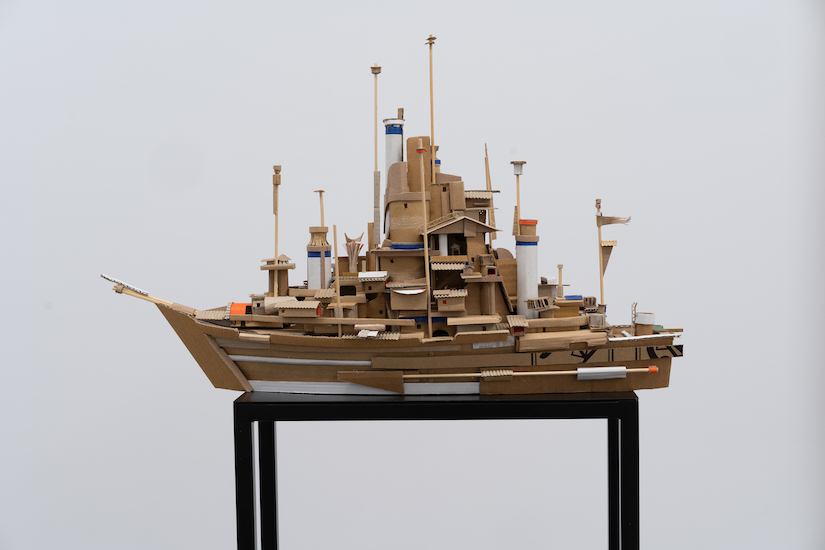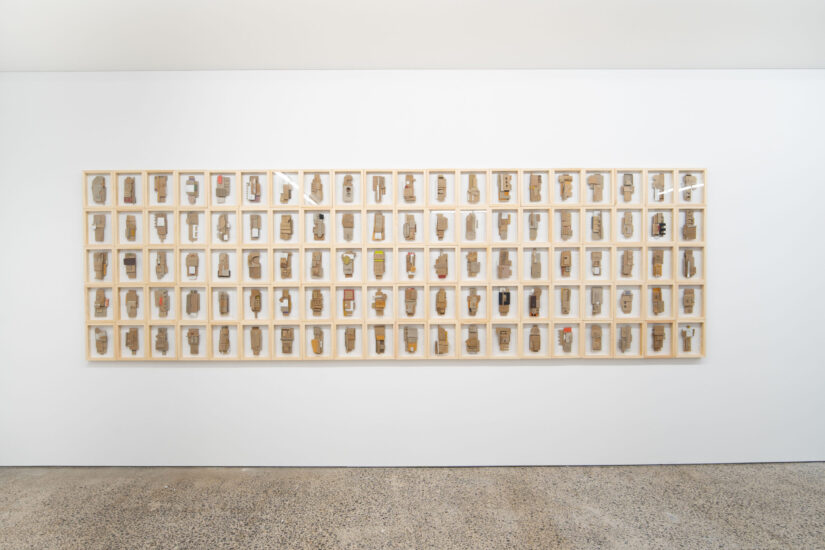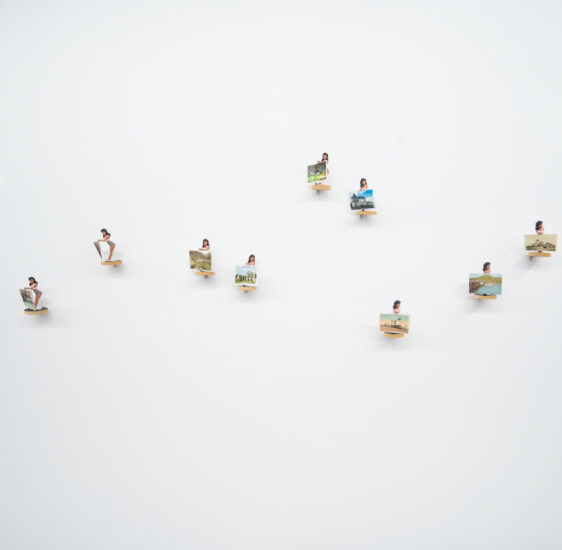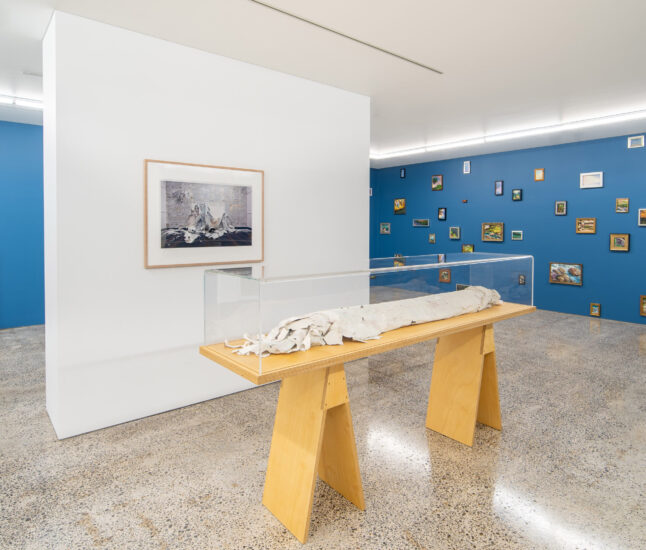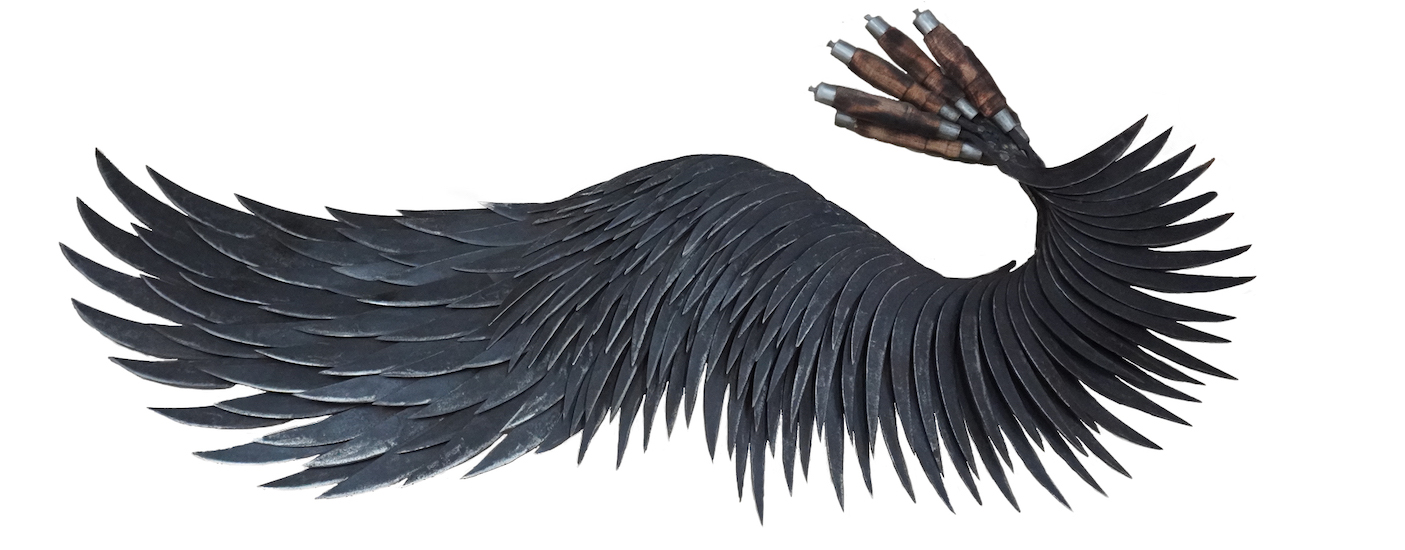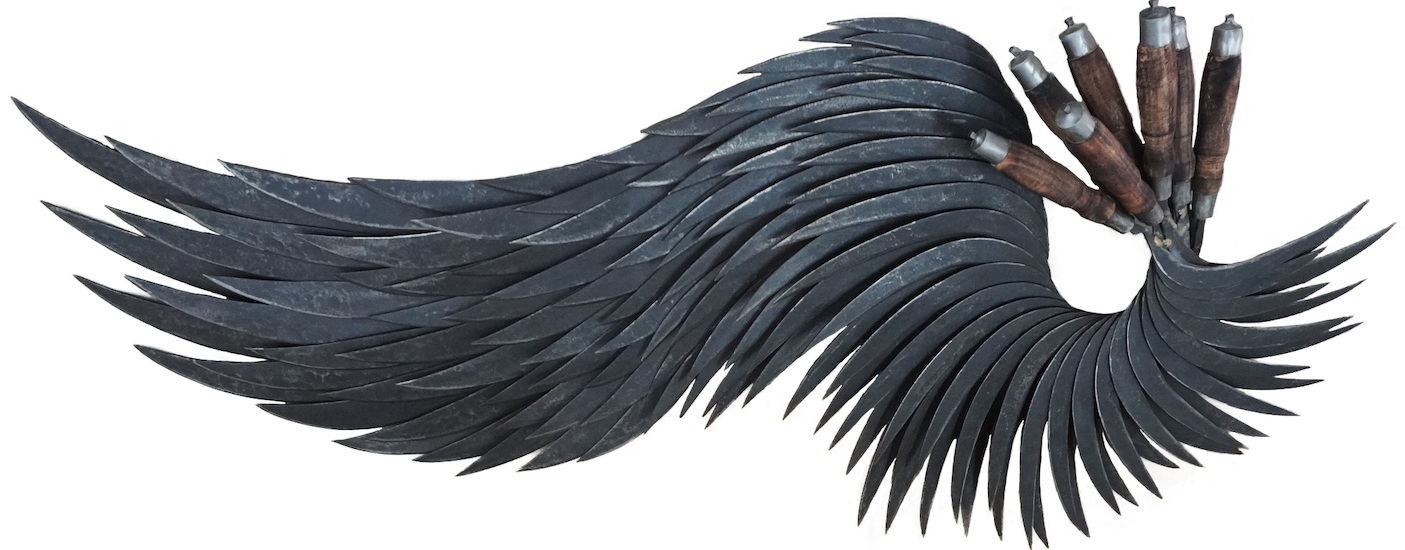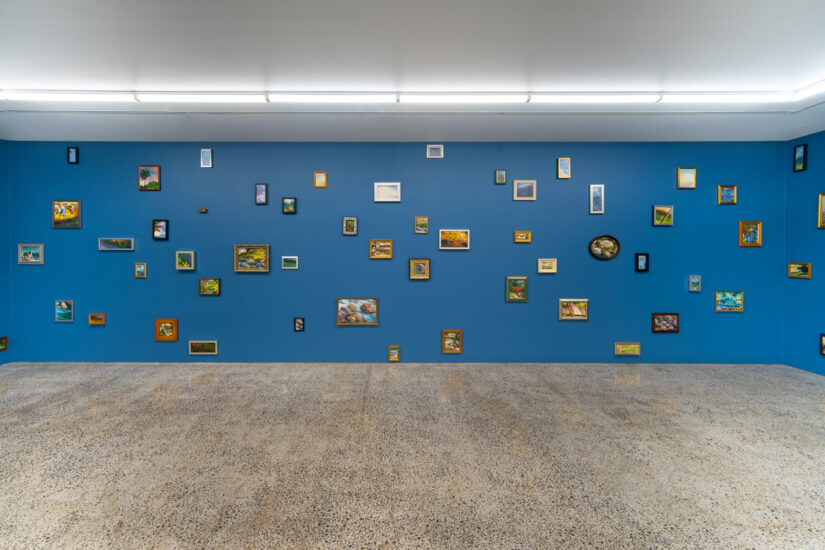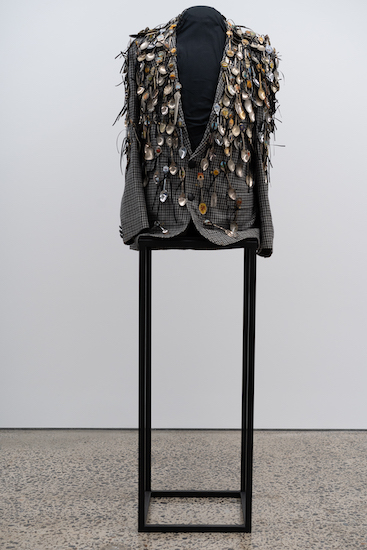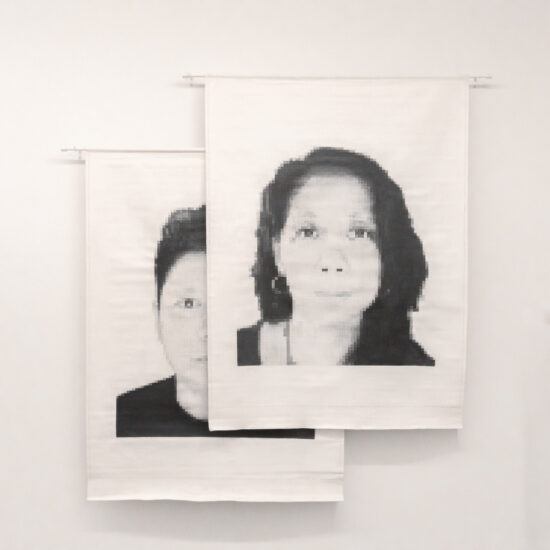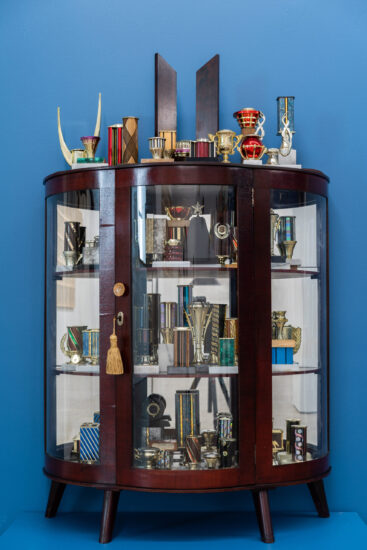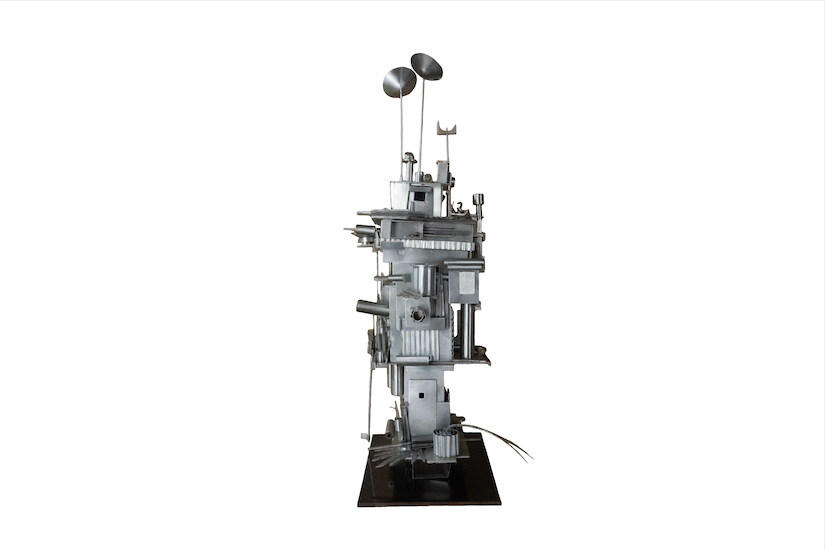Yavuz Gallery is proud to announce internationally-acclaimed artists, Isabel and Alfredo Aquilizan in their fourth solo exhibition with the gallery titled Past & Present Tense. Staying true to their artistic canon of memory, place, diaspora, and the fragility of life, Past & Present Tense anchors ideas of co-creation and the collective spirit that forges connections through shared experiences.
The presentation synthesises fragments of projects from their past, one that they have revisited, reconfigured and heightened by collaboration to produce works that evoke communal experiences. In 2006, the Aquilizans relocated with their family from the Philippines to Australia and have since found assemblage the symbol of the changing nature of their migrating environment.
In Landscape: (fragmented) Mabini Art Project, the husband-and-wife duo critique the institution and authorship of “Mabini Art” — a genre of conservative Filipino landscape painting associated with pandering to the tourist market. It is named after the street in Manila, Philippines, where these ‘Mabini artists’ established themselves during the post-war era, having broken with the Art Association of the Philippines, which they believed favoured modernist styles over traditional approaches. Rendering these sourced and recomposed ubiquitous canvases into an immersive salon-style hang within the gallery, the artists make a statement on modes of productions and consumption, and the roles of disparate audiences.
As Gina Fairley writes “Arguably, permanence has always been the invisible thread laced across all their work, regardless of their material choice or location. It is a conceptual underpinning that speaks to value — not in the traditional sense of art markets and economics – but rather a provocation to audiences to question their own sense of value, of reciprocity and exchange. It is not surprising then, that as the Aquilizans stand on this threshold of past, present and future, value is front of mind.”
Another key work in this exhibition is the artists’ noteworthy hand-forged metal sculptures from their ongoing body of work, Left Wing Project — a series that examines the complex socio-political struggles that contemporary agrarian societies face across Asia. For Past & Present Tense, the Aquilizans continue their engagement with the Pandayan; the Filipino practice of blade-making that is now a waning industry due to the processes of globalisation. The sculptures, fashioned into the shape of left angel wings, play on tension between material weight and visual lightness, where the wing motif connotes levity, gentleness, and serenity, whilst the blades speak of hardness and severity.
For the artists, working with craftspeople continuously poses critical questions surrounding the intertwined nature of ecologies of art and community. In these dynamic social spaces, how do we co-create a subsistent and reciprocal exchange in making art?
Over the years, the Aquilizans have received critical acclaim for their large-scale site-specific installations, which are often constructed using materials both abstract and referential, such as cardboard boxes, packing tape and personal belongings — items that reflect the challenges and hopes characteristic of the migratory experience. In gathering domestic items, mementos and found objects, they restore the ecology of art as a synapse of interaction, mutual critique of differences, and the confluence of communities.
